Friedrich-Alexander University Erlangen-Nuremberg
 Prof. Michael Wensing is renowned for his contribution to the experimental investigation of rapid spray processes and flows under high pressure and temperature. Additionally, he is known for the design and fabrication of test rigs and instrumentation and (laser) optical diagnostics that are currently used by many R&D departments of automotive companies in Germany. He has been supervisor of 20 successfully completed doctoral theses in engineering so far and is currently advising 16 doctoral candidates. From 2010 to 2013 he was elected Dean of studies of the faculty of engineering at FAU. Currently, he is a member of the faculty council and a member of the evaluation board for all studies at FAU university. His research group (1 Postdoc, 10 engineers, 6 student assistants) at FAU is third-party funded by more than 90% with research contracts from the national and international automotive industry and public research foundations like the EU and national and international research councils. He has published over 200 scientific papers (H-index 13). Since 2006, he is the coordinator and PI of numerous industrial and public-funded programs, including Marie Curie ITN networks. Prof Wensing will devote 20%FTE to this project, covert by FAU.
Prof. Michael Wensing is renowned for his contribution to the experimental investigation of rapid spray processes and flows under high pressure and temperature. Additionally, he is known for the design and fabrication of test rigs and instrumentation and (laser) optical diagnostics that are currently used by many R&D departments of automotive companies in Germany. He has been supervisor of 20 successfully completed doctoral theses in engineering so far and is currently advising 16 doctoral candidates. From 2010 to 2013 he was elected Dean of studies of the faculty of engineering at FAU. Currently, he is a member of the faculty council and a member of the evaluation board for all studies at FAU university. His research group (1 Postdoc, 10 engineers, 6 student assistants) at FAU is third-party funded by more than 90% with research contracts from the national and international automotive industry and public research foundations like the EU and national and international research councils. He has published over 200 scientific papers (H-index 13). Since 2006, he is the coordinator and PI of numerous industrial and public-funded programs, including Marie Curie ITN networks. Prof Wensing will devote 20%FTE to this project, covert by FAU.
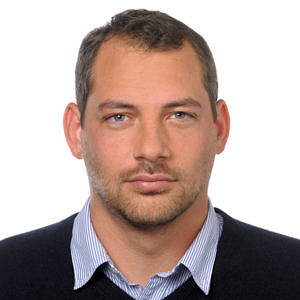 Dr. Lukas Weiss received a Master degree in Material Science at FAU, Germany (2014). His research is focused in laser diagnostics, investigations of spray for diesel engine applications, spray transport in crossflow conditions and temperature management in Li-ion battery packs.
Dr. Lukas Weiss received a Master degree in Material Science at FAU, Germany (2014). His research is focused in laser diagnostics, investigations of spray for diesel engine applications, spray transport in crossflow conditions and temperature management in Li-ion battery packs.
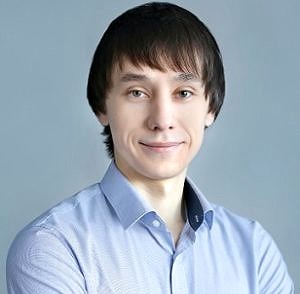 Dr. Dmitrii Mamaikin (male, first-time participant to FET) received a Master degree in Advanced Optical Technologies at FAU (2016). His research is focused in investigation of internal nozzle flow and primary breakup for gasoline direct injection systems, optical diagnostics, cavitation phenomena in nozzles and thermal management of Li-ion batteries.
Dr. Dmitrii Mamaikin (male, first-time participant to FET) received a Master degree in Advanced Optical Technologies at FAU (2016). His research is focused in investigation of internal nozzle flow and primary breakup for gasoline direct injection systems, optical diagnostics, cavitation phenomena in nozzles and thermal management of Li-ion batteries.
City, University of London
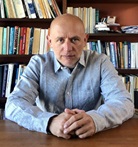 Prof. Manolis Gavaises is working on the development and implementation of complex multi-phase flow models and their application to the automotive industry. He has developed numerous numerical codes, covering a range of Mach numbers from subsonic to hypersonic, interface capturing methods, phase interactions and phase-change processes. Effects of cavitation on erosion/durability of fuel injection systems and atomisation, as well as viscoelastic fuel additive effects on cavitation have been explored.
Prof. Manolis Gavaises is working on the development and implementation of complex multi-phase flow models and their application to the automotive industry. He has developed numerous numerical codes, covering a range of Mach numbers from subsonic to hypersonic, interface capturing methods, phase interactions and phase-change processes. Effects of cavitation on erosion/durability of fuel injection systems and atomisation, as well as viscoelastic fuel additive effects on cavitation have been explored.

Dr. Ioannis Karathanassis has a strong background in heat-transfer enhancement techniques. He is overseeing the research activities at City focusing on the development of the numerical framework for predicting the flow behaviour of novel heat-transfer liquids and the overall BTMS performance. He is also involved in the liquids and system design in close collaboration with partners at FAU and Lubrizol.
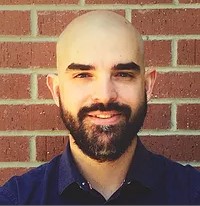
Dr. Vasileios Sassanis is responsible for the numerical simulations and computational analysis of BTMS, specifically focused on heat-transfer enhancement mechanisms, topology optimization, linear vortex generators and viscoelastic / electrochemical-thermal coupling. He has wide experience in CFD applications ranging from the low-Re regime in catalytic reactors to supersonic, compressible, turbulent flows for launch vehicle acoustics.
ETH Zürich
 Prof. Dimos Poulikakos conducts research in the area of nanotechnology, interfacial transport phenomena, and thermodynamics in emerging technologies, and novel methods of energy-conversion, with a broad palette of applications. He has published over 450 research articles in peer refereed scientific journals (h-index 89) and many papers in scientific conference proceedings as well as a textbook in heat conduction (Prentice Hall, 1994). He is the Editor in Chief of the Journal the Experimental Heat Transfer, and an Editor of Scientific Reports, the Journal of Microscale Thermophysical Engineering, the Journal of Porous Media, the Intl. Journal of Heat and Mass Transfer and the Intl. Journal of Transport Phenomena. He represents Switzerland in the world assembly of heat transfer conferences. He is a Fellow of ASME and a member of the Swiss National Academy of Engineering.
Prof. Dimos Poulikakos conducts research in the area of nanotechnology, interfacial transport phenomena, and thermodynamics in emerging technologies, and novel methods of energy-conversion, with a broad palette of applications. He has published over 450 research articles in peer refereed scientific journals (h-index 89) and many papers in scientific conference proceedings as well as a textbook in heat conduction (Prentice Hall, 1994). He is the Editor in Chief of the Journal the Experimental Heat Transfer, and an Editor of Scientific Reports, the Journal of Microscale Thermophysical Engineering, the Journal of Porous Media, the Intl. Journal of Heat and Mass Transfer and the Intl. Journal of Transport Phenomena. He represents Switzerland in the world assembly of heat transfer conferences. He is a Fellow of ASME and a member of the Swiss National Academy of Engineering.
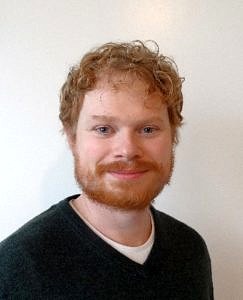 Dr. David Taylor is trained as an experimental physicist with a focus on transport processes at the micro- and nanoscale. He obtained his PhD from École Polytechnique Fédérale de Lausanne (2019) for the research he conducted at IBM Research Zurich. During his PhD he studied the formation of hydrodynamic flow confinements for localized processing of surfaces in multiplexed pathological diagnostics. He received an SNF Mobility fellowship to spend eight months of his PhD at the University of California, Santa Barbara, developing an optical technique for the label-free imaging of concentration gradients.
Dr. David Taylor is trained as an experimental physicist with a focus on transport processes at the micro- and nanoscale. He obtained his PhD from École Polytechnique Fédérale de Lausanne (2019) for the research he conducted at IBM Research Zurich. During his PhD he studied the formation of hydrodynamic flow confinements for localized processing of surfaces in multiplexed pathological diagnostics. He received an SNF Mobility fellowship to spend eight months of his PhD at the University of California, Santa Barbara, developing an optical technique for the label-free imaging of concentration gradients.
He joined ETH Zurich as a postdoctoral research associate end of 2019 and is responsible for the coordination of ETH’s efforts in the I-BAT project, as well as for the development, fabrication and characterization of surface coatings, which balance favorable heat transfer characteristics against drag-reduction.
 Dr. Tamal Roy has a background in microscale heat and mass transfer, interface science, wettability-engineering techniques and electrokinetic transport processes. He obtained his doctoral degree from Technische Universität Darmstadt (2017) on the study of polyelectrolytes under confined micro-environment. After obtaining his PhD, he joined University of Illinois at Chicago as a postdoctoral research associate and worked on various aspects of liquid transport on wettability-engineered and heated surfaces. As a postdoctoral research associate at ETH Zürich and a member of I-BAT, he is responsible for designing and characterization of the flow geometry in order to augment the heat transfer and enhance the BTMS performance.
Dr. Tamal Roy has a background in microscale heat and mass transfer, interface science, wettability-engineering techniques and electrokinetic transport processes. He obtained his doctoral degree from Technische Universität Darmstadt (2017) on the study of polyelectrolytes under confined micro-environment. After obtaining his PhD, he joined University of Illinois at Chicago as a postdoctoral research associate and worked on various aspects of liquid transport on wettability-engineered and heated surfaces. As a postdoctoral research associate at ETH Zürich and a member of I-BAT, he is responsible for designing and characterization of the flow geometry in order to augment the heat transfer and enhance the BTMS performance.
Lubrizol
 Dr. Tim Smith is a Global Strategic Technology Manager at Lubrizol’s UK research and development centre in Hazelwood, Derby. Tim specialises in polymer development and rheology control in the oil additives business. In this I-BAT project Tim is responsible for formulating fluids with well-defined rheology characteristics.
Dr. Tim Smith is a Global Strategic Technology Manager at Lubrizol’s UK research and development centre in Hazelwood, Derby. Tim specialises in polymer development and rheology control in the oil additives business. In this I-BAT project Tim is responsible for formulating fluids with well-defined rheology characteristics.